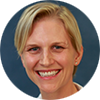Physicians are often thought of as “bleeding hearts.” We like to help people, and it is often what drew us to medicine in the first place.
For that reason, nearly every medical school or residency application expresses interest in global health work or working with vulnerable populations. However, that passion for service, especially in the global context, often dwindles as one makes their way through residency.
The hours are long. The hoops we have to jump through are plenty, and suddenly three years have passed, and the time you referenced each time you said, “I will look into it when I have time” or “I will do that once I am in practice” has finally arrived.
Feeding that early passion is a key way to avoid burnout. I encourage all of you who once had a desire to pursue international outreach and not get discouraged by limitations of time, distance or a global pandemic.
Anyone else tired of hearing the word “unprecedented”? Although it feels overused today, it is exactly what we are dealing with in the time of COVID-19. The pandemic has halted nearly all international travel, limiting global health programs.
However, it does not mean that the work has stopped. In actuality, clinical care is only a small part of global ophthalmology. Supporting research and education are the linchpins of capacity-building and eliminating blindness. There are still many ways to be involved in global health work that keeps the door open for further opportunities in the future.
Here are five ways to stay involved in global ophthalmology and set yourself up for success once borders open again.
- Make or maintain connections. Did your residency have a global ophthalmology program? Have you been on international trips before? Maintain those connections. Reach out to the foreign doctors you have worked with before and see how you can support them. Keep the door of communication open. Offer to consult on cases or share lectures with their staff. If you do not have any such connections, reach out to others. Reach out to SEE International, Seva, Orbis, the Himalayan Cataract Project and others to see how you can get involved.
- Sharpen your skills. Enroll in wet labs at the Academy’s annual meetings or at American Society of Cataract and Refractive Surgery (ASCRS) meetings to get experience with manual small incision cataract surgery. Read up on the management of cataract, glaucoma and diabetic retinopathy in developing countries. The management you learned in residency may not translate to other populations, but you became a pro at adapting and learning during residency. Then keep that skill. Go to the Academy website and check out the lectures and courses on blindness prevention and global ophthalmology.
- Teach. Get involved in education. A large focus of blindness prevention programs is capacity building by supporting the training for larger numbers of and higher quality of ophthalmologists. Offer to provide lectures or do case presentations. Get very familiar with Zoom, WhatsApp, Skype, etc.
- Participate in physician forums. There are numerous online forums for physicians to post and ask for patient management advice. Keranet and Orbis Cybersight, among others, offer fabulous networks. This allows you to see interesting cases, teach others and opens the door to develop relationships and partnerships with physicians abroad.
- Don’t forget local. COVID-19 has been devastating to the economy and we are guaranteed to see higher than ever levels of unemployed and uninsured. Reach out to local free clinics and offer eye care services. Contact your local Lions Club or Prevent Blindness America chapter and see how you can support their efforts. Register for Academy’s EyeCare America or ASCRS’ Operation Sight and serve the vulnerable in your community.
COVID-19 has certainly closed the doors to travel but that does not mean that the doors to service and global ophthalmology have also closed. Your support, such as that described above, will continue the World Health Organization’s mission of capacity-building and blindness prevention.
Staying active in global ophthalmology will feed the soul, prevent burnout and fulfill the passion that led you to medicine so many years ago. One day, when COVID-19 is a memory and borders have opened, you can finally visit all those faces from Zoom in person and work and learn alongside each other.
* * *
 About the author:
About the author: Jacquelyn A. Jetton O’Banion, MD, completed her residency at Dean McGee in 2013 followed by their first-ever Global Ophthalmology Fellowship in 2014. She then went to London and completed a Masters of Public Health for Eye Care at the London School of Hygiene and Tropical Medicine. She is now at Emory University, where she is an Assistant Professor of Ophthalmology and the Director of Global Ophthalmology.